With students no longer coming to campus for classes and the cancellation of the candidates’ forums, the annual University of Saskatchewan Students’ Union elections are shaping up to be an unusual affair.
Despite the less than ideal circumstances, however, there is a high number of candidates that will be running their campaigns over the next two weeks. This year, only one position, the vice-president academic affairs, has a candidate that is running unopposed.
Campaigning began this Monday, and voting will be open on PAWS on March 25 and 26. Here are the candidates that will be trying to earn your vote by then.
Presidential candidates
Platform points: Impact-focused services, reconciliation, transparency and accessibility, and inclusion and diversity
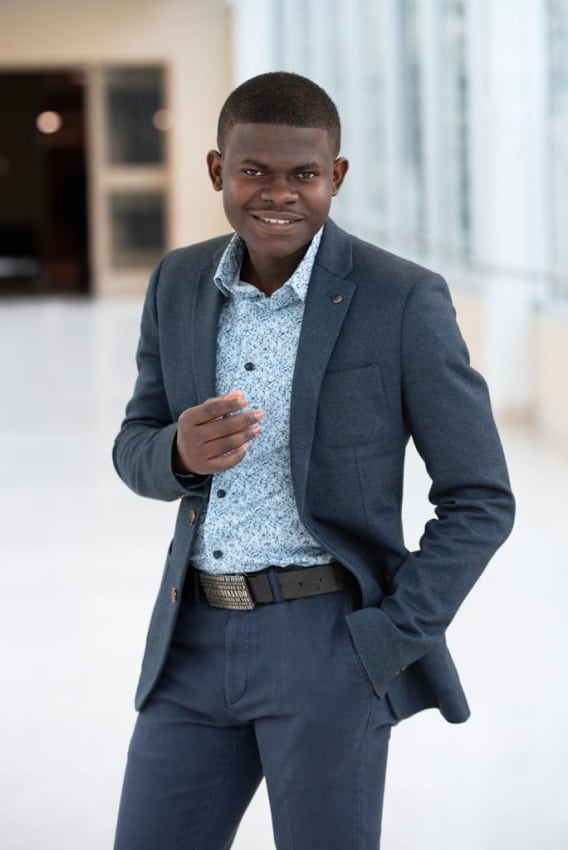
Akingbehin Akinwande wants to “make the USSU the union that students need it to be.” This third-year psychology student describes himself as carefree and jovial but serious and disciplined when it comes to completing tasks and debating issues.
Akinwande believes in responsibility, love, accountability, character, competence and humility in leadership. He has been involved in community leadership throughout his years as a student, as a University Students’ Council member and International Students’ Association president.
“I believe my selfless service is the rent I pay for living on this planet,” Akinwande said.
Akinwande has decided to run for president to make the union better serve its constituents.
“I don’t see this union serve and meet the needs of its student members as I know it could, given the resources at its disposal,” he said.
As for what sets him apart from the other candidates, Akinwande says it is his “heart for the students” and that he will “always work for the students and always listen to them.”
Platform points: Student empowerment, student wellness, advocacy and sustainability
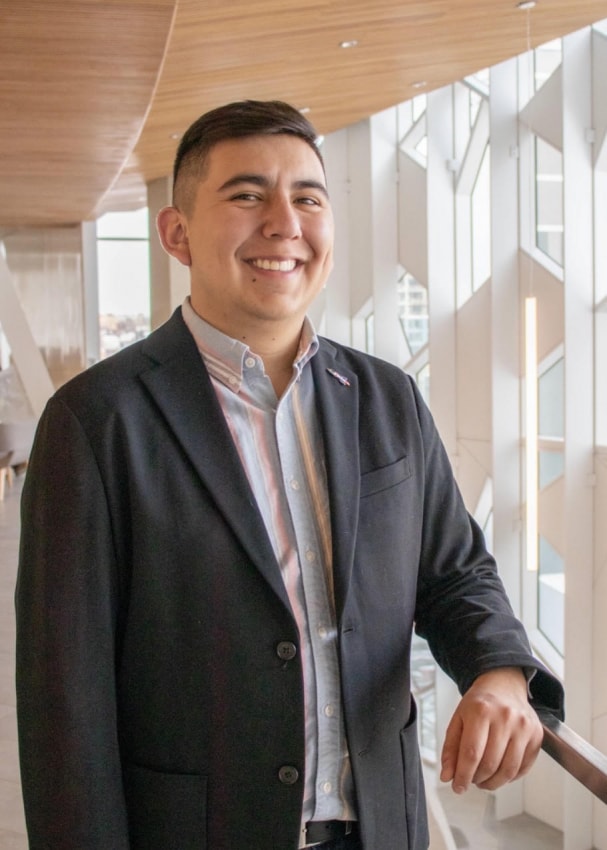
Carlos Muñoz Pimentel’s priorities are his three Cs: communication, community and connection, and he is hoping that you will make this three-year veteran of the USSU its next president. Currently serving as the 2019-20 vice-president academic affairs for the USSU and a former USC member, Muñoz Pimentel believes that his experience and knowledge of how the USSU and the university function makes him a good candidate.
Muñoz Pimentel counts honesty, respect, communication and collaboration among his most important values. When asked why he is running, Muñoz Pimentel said that he has “learned a lot about how the [USSU] runs.”
“I’ve met a lot of students along the way with a lot of ideas, and they all have inspired me to really move forward with this plan,” Muñoz Pimentel said.
Muñoz Pimentel believes that his experience with the USSU and his approachability are what set him apart from the competition.
“This means I can hit the ground running to make student voices heard — right from the first meeting,” Muñoz Pimentel said.
Platform points: Student-centred decision making that is socially, economically and environmentally responsible
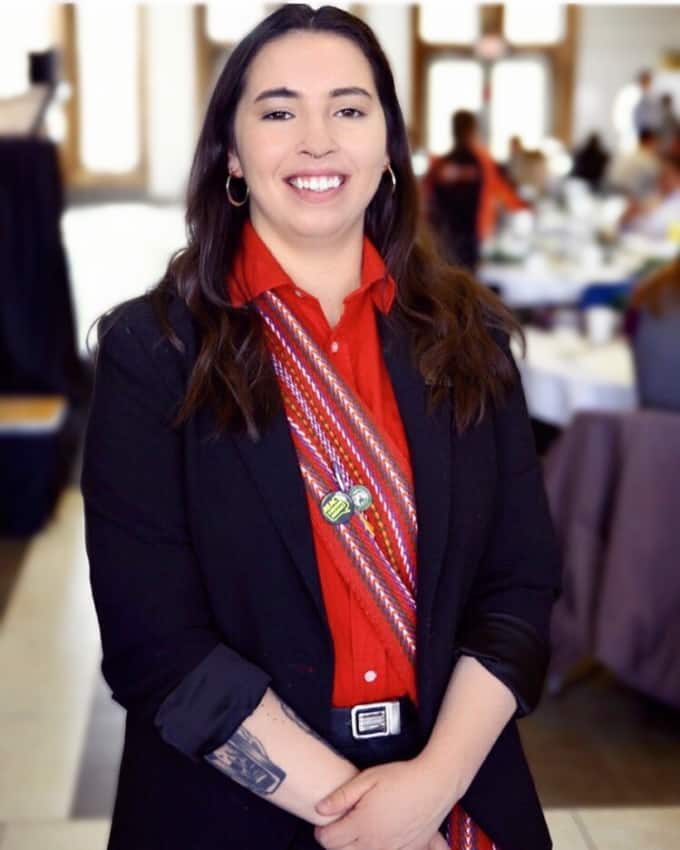
Autumn LaRose-Smith is a fourth-year student in the Saskatchewan Urban Native Teacher Education Program. She is the current vice-president student affairs. LaRose-Smith has served in numerous student and volunteer groups such as the SUNTEP Student Council, International Women’s Movement and 5 Days for the Homeless.
LaRose-Smith says her core values are honesty, respect — particularly through relationship building — and volunteering.
“Those are things that I based my life around — wanting to help other people. People often describe me as selfless, but I always joke that I feel very selfish, because for myself it brings me a lot of personal joy to be able to volunteer and help my community,” LaRose-Smith said.
Autumn has decided to run for president because she feels that she is a good advocate. When asked what differentiates her from other candidates, LaRose-Smith identified her plan to create an accessible scholarships and bursaries directory to help support students financially.
Vice-president operations and finance candidates
Platform points: Socially and financially sustainable campus groups, tuition predictability and transparent leadership
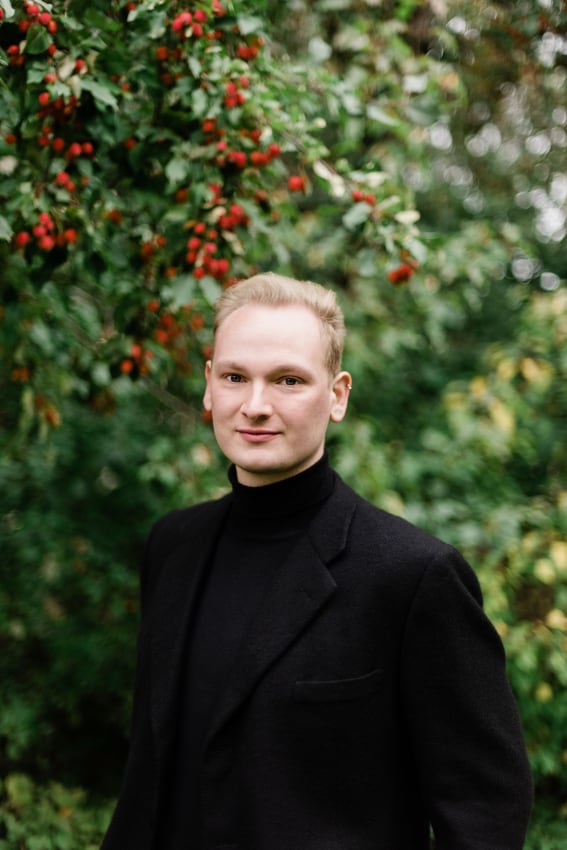
Jamie Bell is a business student who has been at the university since 2014. He enjoys working with people and is an active member of local non-profits and art communities. He is the current vice-president operations and finance and would like to keep it that way.
Bell’s core values are respect and collaboration.
“I think those can help you in so many different situations — being able to work with people that you don’t like and still being able to respect their opinions and respect their value systems,” Bell said.
Bell is running for a second term, this time with greater experience and a list of issues he wants to address, especially in regards to campus groups. His experience with campus groups and his judgement are things he says distinguishes him from other candidates.
Kutska did not respond to the Sheaf ’s request for an interview in time for this article.
Vice-president academic affairs candidate
Platform Points: Advocate for students, address mental health, accountability in Indigenization and decolonization and attack student loan interests
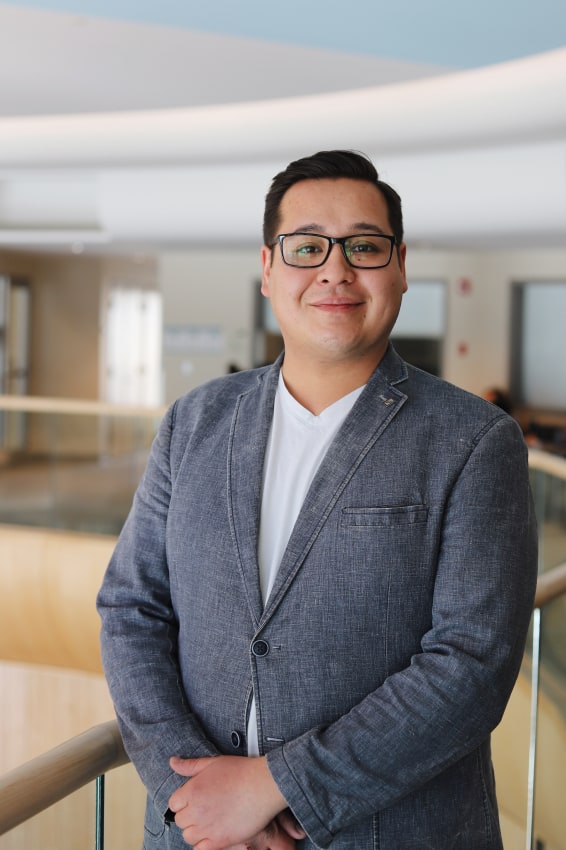
Kiefer Roberts has served at the USSU prior to this year’s election. This year he has been part of the University Students’ Council as Indigenous Students’ representative. He has also sat in a number of USSU committees and was part of the Indigenous Students’ Council.
With this experience under his belt, Roberts believes he has acquired all of the necessary skills in order to do the job and voice students’ concerns. His platform is geared to addressing both Indigenous and non-Indigenous undergraduate students’ needs.
Before attending university, Roberts attended Aboriginal Policing Preparation at Saskatchewan Polytechnic in Prince Albert. After learning the RCMP’s core values of honesty, integrity, compassion, accountability, responsibility and professionalism, he wants to bring those to the USSU position, as well as transparency.
“Peter Stoicheff is really pushing for Indigenization on campus… I just want to make sure it’s done properly, making sure they’re consulting … the proper people in regards to Indigenization,” Roberts said. “When I talk about Indigenization and decolonization, it doesn’t only apply to Indigenous students.”
Vice-president student affairs candidates
Platform points: Tuition affordability, accessibility, accountability and involvement with centre coordinators
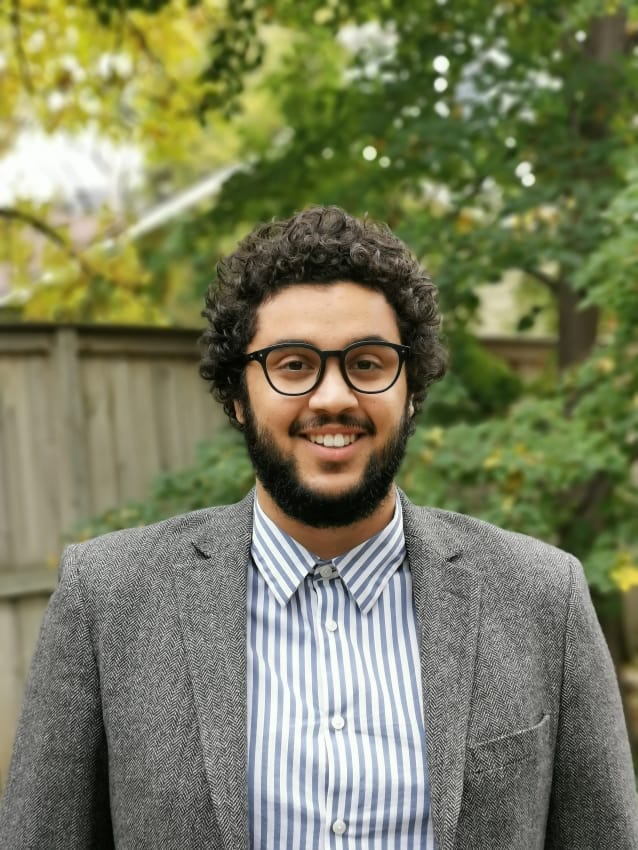
Nigel Hakeem is focused on addressing student issues. A fifth-year English student, he has served two terms as a USC member. Knowing the responsibility and impact the USSU has on its students, Hakeem keeps in mind that students’ ease, comfort and accessibility should be at the forefront of decision-making.
“I have been involved with student politics since I first came to the University of Saskatchewan. And with the issues that I have seen, I am pretty passionate about making some real change,” Hakeem said. “I think the USSU has a huge responsibility to make the lives of U of S students easier.”
Hakeem sees areas of the USSU as being disconnected from the student body and he ensures that he would be able to remedy this. He believes that the USSU needs to be more transparent and accessible.
Platform points: Accessibility through resources and harm reduction, advocacy for inclusion and sustainable practices
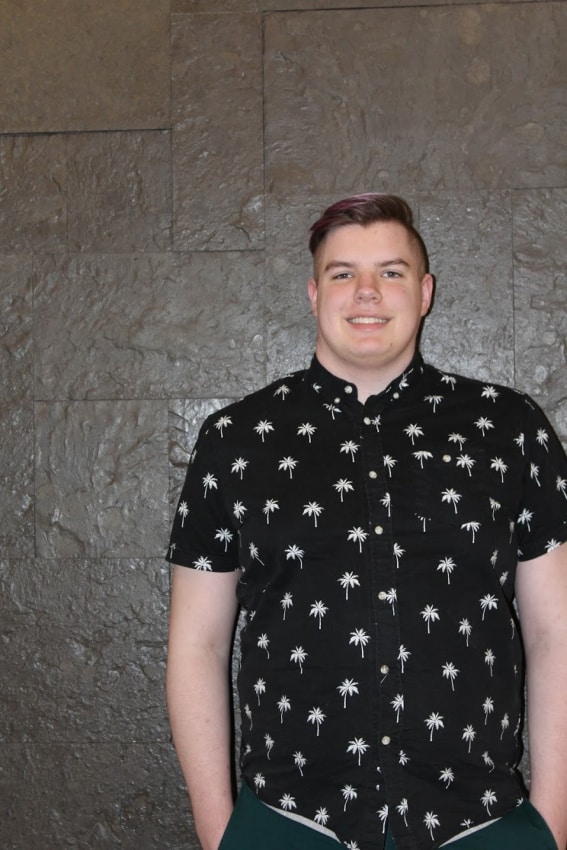
Jory McKay ensures that he is pushing the university to follow through with their promises and doing everything that he can in order to make things happen. A third-year student majoring in anthropology and minoring in history, McKay is passionate about being involved both in his academics and in the wider community.
While juggling a full course load, he is also the current coordinator at the Pride Center. His notable works include repurposing the Positive Space program, advocating for the ban on conversion therapy and pushing for gender-neutral bathrooms on campus.
“I have been [working] really, really hard on campus to make these things happen. There are things that take time out of my own schedule and full-time course to make sure it really happens,” McKay said.
“There are students who do not have the voice that they need and I really think that I can act as that voice for students and I really want to be fully accessible to students — so if students have any requests, I want to be available.”
Platform points: Promoting available services and increased funding and accessibility for mental health services
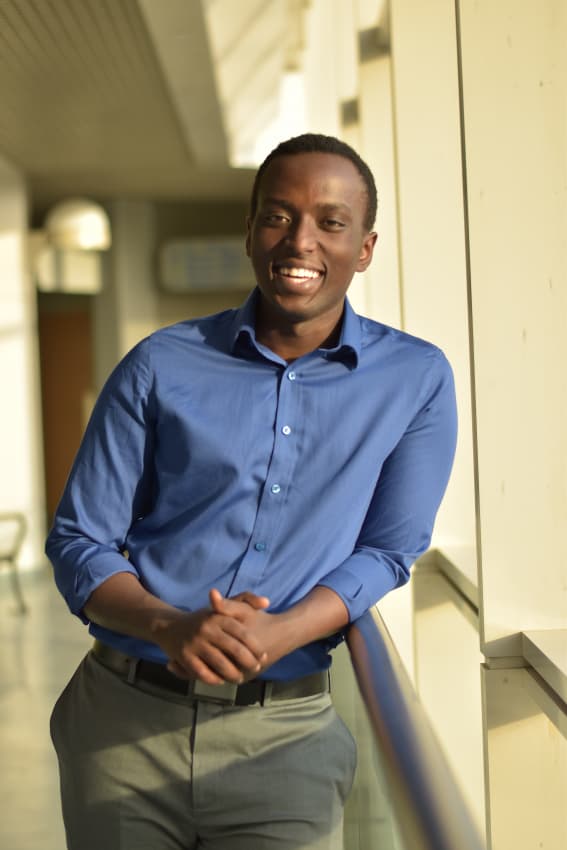
Gédéon Isezerano says his involvement in the community has allowed him to experience both sides, the good and the bad. Having previous experience in leadership and advocacy positions, Isezerano’s focus is on keeping good communication with students to better serve their interests.
“I think I’m the right person for this because I am bringing approachability and a socializing aspect to the table, as well as the advocacy part,” Isezerano said. “I’ve been on various boards that advocate for youth. I also bring the ability to get things moving and done.”
His guarantee is to bring his approachability and advocacy experience to the table and make sure that students will be well taken care of outside of their school life.
“One thing that I think I can offer students is the ability to represent the whole student body,” Isezerano said. “When you look at my platform, I’m not aiming for anything impossible, but it’s things that students really need, to focus on school without worries.”
—
Kienan Ashton
Kristine Jones A. Del Socorro
Leave a Reply